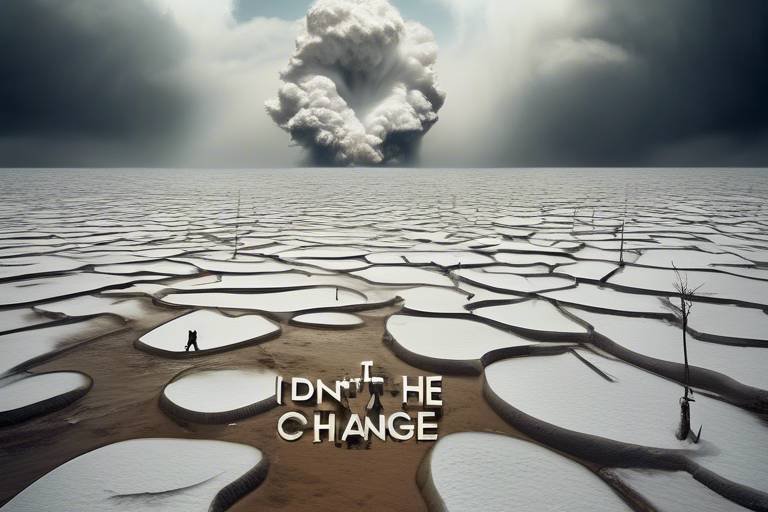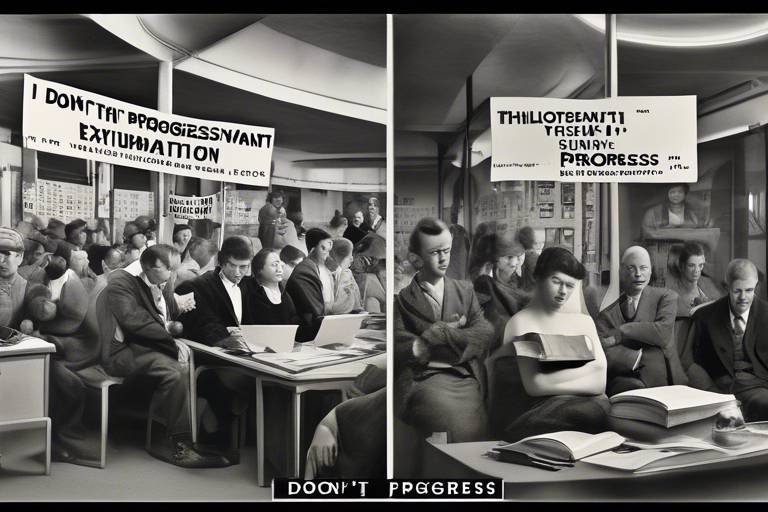The Philosophical Discourse on Climate Change
Climate change is not just an environmental issue; it is a profound philosophical dilemma that challenges our ethical frameworks, our understanding of existence, and our responsibilities to one another and to future generations. As we navigate through the complexities of climate change, it becomes essential to engage in a discourse that goes beyond the scientific data and economic implications. We must ask ourselves: What does it mean to be responsible stewards of the planet? How do our actions today affect those who will inhabit Earth in the future? These questions are at the heart of the philosophical discourse surrounding climate change.
At its core, the philosophical examination of climate change invites us to reflect on our values and priorities. Are we merely consumers, or do we have a moral obligation to protect the natural world? The urgency of climate change compels us to reconsider our ethical responsibilities. It pushes us to confront the uncomfortable truths about our consumption patterns, the inequalities that exacerbate environmental degradation, and the existential risks that loom over humanity. In this way, climate change serves as a mirror, reflecting our values and challenging us to rise to the occasion.
Moreover, the implications of climate change extend beyond the present. The decisions we make today will resonate through time, affecting the lives of countless future generations. This intergenerational aspect of climate ethics raises crucial questions: How can we ensure that our actions do not compromise the well-being of those who come after us? What ethical frameworks can guide us in making decisions that honor our responsibilities to future inhabitants of this planet? These inquiries highlight the need for a robust philosophical discourse that not only addresses the immediate challenges of climate change but also considers the long-term consequences of our actions.
In addition to ethical considerations, the discourse on climate change also delves into the existential risks it poses. The potential for widespread catastrophe forces us to confront the very nature of human existence. It challenges our societal structures, our values, and even our understanding of what it means to live a fulfilling life. As we grapple with the reality of climate change, we must also navigate the philosophical questions surrounding the value of life itself in the face of such overwhelming threats.
Ultimately, engaging in this philosophical discourse is not just an academic exercise; it is a call to action. It urges us to cultivate a sense of responsibility and urgency in addressing climate change. By exploring the ethical dimensions, existential risks, and the implications for future generations, we can foster a deeper understanding of our role in the world. This understanding can inspire collective action, innovative solutions, and a commitment to sustainability that transcends individual interests. In doing so, we can create a legacy that honors our planet and its inhabitants, both present and future.
- What is the main focus of the philosophical discourse on climate change?
The discourse focuses on the ethical implications, existential threats, and responsibilities we hold towards future generations in the context of climate change. - How does climate change challenge our ethical frameworks?
Climate change compels us to reevaluate our values, consumption patterns, and moral obligations to both the environment and future inhabitants of the planet. - Why is intergenerational ethics important in climate discussions?
Intergenerational ethics emphasizes our responsibilities to ensure that our actions today do not compromise the well-being of future generations. - What role does collective action play in addressing climate change?
Collective action is crucial for fostering effective environmental stewardship, as it balances individual interests with the common good.
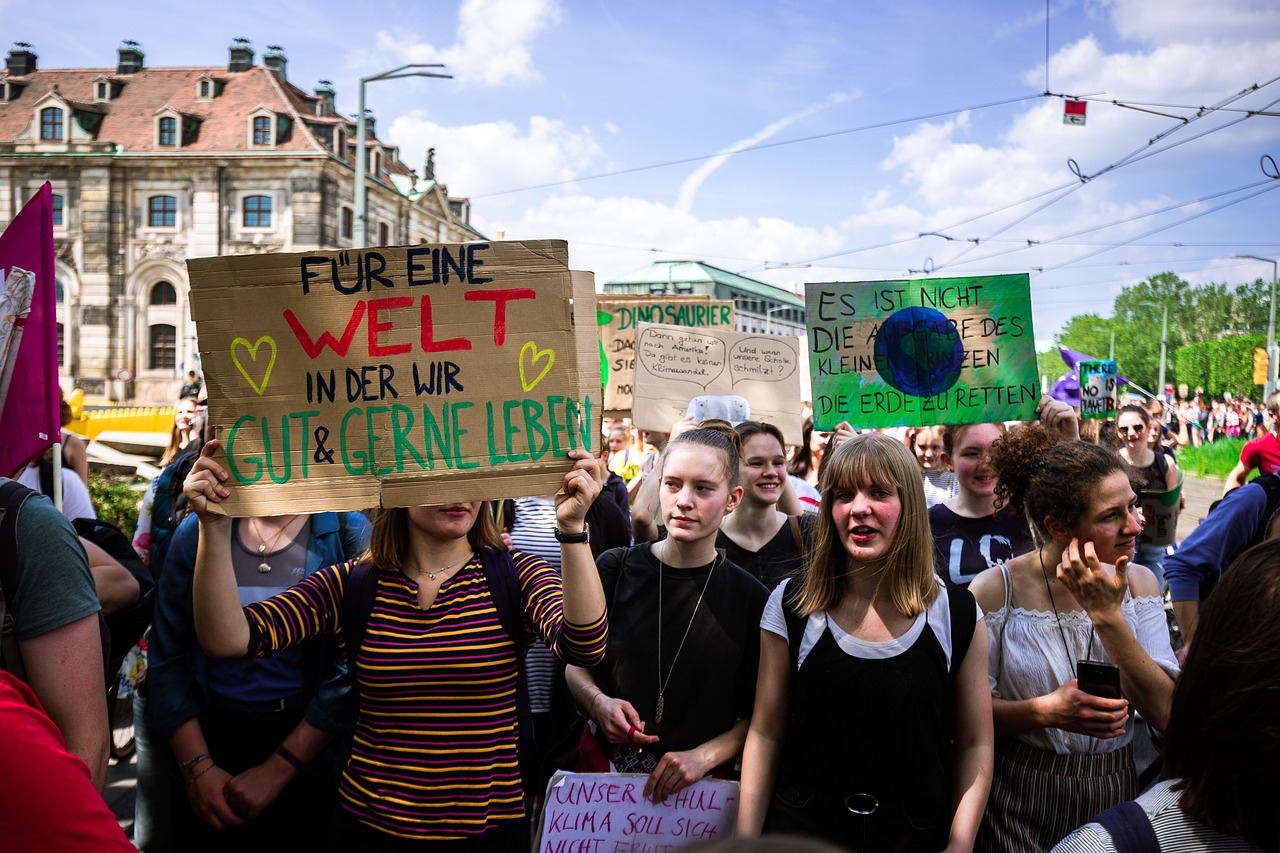
Ethics of Climate Change
When we talk about the , we’re diving into a pool of complex moral questions that challenge our understanding of responsibility and justice. It's not just about the rising temperatures or melting ice caps; it's about what we owe to each other and to the planet. Have you ever wondered how your daily choices impact future generations? This is where ethical philosophy comes into play, pushing us to reflect on our actions and their long-term consequences.
At the heart of this discourse lies the notion of interconnectedness. We are all part of a larger web of life, and our actions can ripple through time, affecting not just our immediate surroundings but also the lives of countless beings yet to come. The ethical implications of climate change compel us to ask: What kind of world do we want to leave behind? This question isn't just for policymakers or environmentalists; it's for everyone. Each of us plays a role in shaping the future, and acknowledging this is the first step toward meaningful action.
One of the significant ethical dilemmas we face is the question of responsibility. Who is responsible for climate change? Is it the corporations that emit greenhouse gases, the governments that fail to enforce regulations, or the individuals who consume without considering the consequences? The reality is that responsibility is shared, and this shared burden raises profound ethical questions. For example, how do we hold those in power accountable while also encouraging individual action? This duality can create a moral maze that many find difficult to navigate.
Moreover, the ethics of climate change are deeply intertwined with justice. There is a growing recognition that climate change disproportionately affects the most vulnerable populations—those who contribute the least to the problem yet suffer the most from its effects. This raises questions of fairness and equity. Should wealthier nations, which have historically contributed the most to greenhouse gas emissions, bear a greater responsibility in addressing climate change? The answer seems to lean toward a resounding yes, yet the path to achieving this equity is fraught with challenges.
To illustrate these ethical considerations, let's look at a simple table that outlines the key responsibilities associated with climate change:
| Stakeholder | Responsibilities |
|---|---|
| Governments | Implement policies, enforce regulations, and promote sustainable practices. |
| Corporations | Reduce emissions, adopt sustainable practices, and invest in green technologies. |
| Individuals | Make conscious choices, reduce waste, and advocate for change. |
In summary, the ethics of climate change compel us to confront our responsibilities, question our values, and consider the implications of our actions. We must recognize that our choices today shape the world of tomorrow. It’s not merely an environmental issue; it’s a moral one that demands our attention and action. As we grapple with these ethical dilemmas, let’s strive to foster a sense of shared responsibility and work toward a more just and sustainable future.
- What is the main ethical concern regarding climate change?
The primary ethical concern is the responsibility we hold towards future generations and the vulnerable populations affected by climate change. - How can individuals contribute to solving climate change?
Individuals can make conscious choices, reduce their carbon footprint, and advocate for sustainable practices in their communities. - What role do governments play in climate ethics?
Governments are responsible for creating and enforcing policies that promote environmental sustainability and hold corporations accountable for their emissions. - Why is global justice important in the context of climate change?
Global justice is crucial because it addresses the inequalities in responsibility and vulnerability among different nations, ensuring that those who contribute the least to climate change are not disproportionately affected.

Existential Risks
Climate change is not just a buzzword; it's an existential threat that looms over humanity like a dark cloud, casting shadows on our future. When we think of existential risks, we often envision catastrophic events that could wipe out entire species or civilizations. But what if I told you that the very fabric of our society, our way of life, and even our values are at stake due to climate change? This isn't just about rising temperatures or melting ice caps; it's about the core of human existence.
At its essence, climate change challenges the foundations of our societal structures. It forces us to confront the uncomfortable reality that our modern conveniences come at a cost. The question arises: how much are we willing to sacrifice for the sake of comfort? The implications of climate change extend beyond environmental degradation; they touch upon our ethical frameworks, our sense of community, and our responsibilities to one another. In this sense, climate change is not merely an environmental issue; it is an existential crisis that challenges our very identity as human beings.
Consider this: as we face the potential for catastrophic outcomes, from extreme weather events to food and water scarcity, we must grapple with some profound philosophical questions:
- What does it mean to live a meaningful life in the face of such uncertainty?
- How do we define our responsibilities to future generations?
- Are we prepared to confront the moral dilemmas that arise as we navigate these turbulent waters?
As we explore these questions, it becomes clear that the stakes are incredibly high. The potential for widespread displacement of populations due to rising sea levels, the collapse of ecosystems, and the breakdown of social order are just a few of the risks that climate change poses. These scenarios are not mere hypotheticals; they are increasingly becoming our reality. The philosophical implications of these risks are staggering, leading us to consider what it means to be human in a world that is rapidly changing.
Moreover, the existential risks associated with climate change are not evenly distributed. Vulnerable populations, often in developing countries, bear the brunt of these impacts despite contributing the least to the problem. This raises critical questions about justice and equity. Are we willing to accept a world where the most disadvantaged suffer the most? The ethical considerations involved in addressing these disparities are profound and cannot be overlooked.
In summary, climate change represents an existential risk that challenges not only our survival but also our values, ethics, and responsibilities to one another. As we navigate this complex landscape, we must engage in deep philosophical inquiry to understand what it means to live in harmony with our planet and with each other. The answers we find will shape the future of humanity and the world we leave behind for generations to come.
- What are existential risks associated with climate change? Existential risks refer to threats that could potentially wipe out humanity or drastically alter our way of life, including extreme weather, food shortages, and social instability.
- How does climate change affect future generations? Climate change impacts future generations by altering their environment, limiting resources, and creating challenges that we must address today to ensure a sustainable future.
- What ethical responsibilities do we have regarding climate change? We have a moral obligation to mitigate climate change impacts, especially for vulnerable populations, and to act in ways that protect the planet for future generations.

Human Responsibility
When we talk about in the context of climate change, we are diving into a deep pool of moral and ethical considerations. It's not just about what we do today; it's about how our actions reverberate through time, affecting not only our lives but also the lives of countless future generations. This responsibility can feel overwhelming, almost like standing at the edge of a vast ocean. The waves of our choices crash against the shores of our environment, shaping the world we leave behind.
At the heart of this discussion lies a fundamental question: What obligations do we have to our planet and to each other? The answer is complex, often intersecting with various philosophical ideas. For instance, some argue that our responsibility stems from a moral obligation to protect the Earth as stewards of its resources. This stewardship perspective emphasizes that we are caretakers of the environment, entrusted with the responsibility to maintain its health for future inhabitants.
Moreover, the concept of interconnectedness plays a crucial role in understanding our responsibilities. Every action we take—be it recycling a plastic bottle or advocating for sustainable policies—contributes to a larger tapestry of environmental health. When we engage in practices that harm the planet, we are not just affecting ourselves; we are impacting entire ecosystems and communities. This interconnectedness is a reminder that we are all in this together, and our collective actions can lead to profound change.
However, it’s essential to recognize the ethical dilemmas that arise when addressing climate change. For example, consider the tension between economic growth and environmental sustainability. Many developing nations face the challenge of boosting their economies while simultaneously combating climate change. This situation raises questions about fairness and equity: Should wealthier nations bear a greater burden in addressing climate change due to their historical emissions? The answers to these questions are not straightforward and require thoughtful deliberation.
To further illustrate the weight of our responsibility, let's consider a simple analogy: Imagine you are part of a community that shares a beautiful garden. Each member contributes to its upkeep, but some choose to neglect their duties, allowing weeds to overrun the space. Over time, the garden suffers, and everyone loses out on its beauty and bounty. This scenario mirrors our global situation regarding climate change. If we ignore our responsibilities, we risk ruining the shared environment that sustains us all.
In conclusion, grappling with human responsibility in the face of climate change is not just an intellectual exercise; it’s a call to action. We must recognize our roles as stewards of the planet and engage in meaningful discussions about our obligations to each other and future generations. As we ponder these questions, let’s remember that every small action counts, and together, we can cultivate a healthier, more sustainable world.
- What is human responsibility in relation to climate change?
Human responsibility refers to the moral and ethical obligations we have to protect the environment and ensure a sustainable future for generations to come. - How can individual actions impact climate change?
Individual actions, such as reducing waste, conserving energy, and advocating for policy changes, can collectively lead to significant positive changes in environmental health. - Why is intergenerational responsibility important?
Intergenerational responsibility emphasizes the need to consider the long-term effects of our actions on future generations, ensuring they inherit a healthy and sustainable planet. - How do ethical dilemmas complicate climate action?
Ethical dilemmas arise when balancing economic growth, social equity, and environmental sustainability, making it challenging to find universally acceptable solutions.
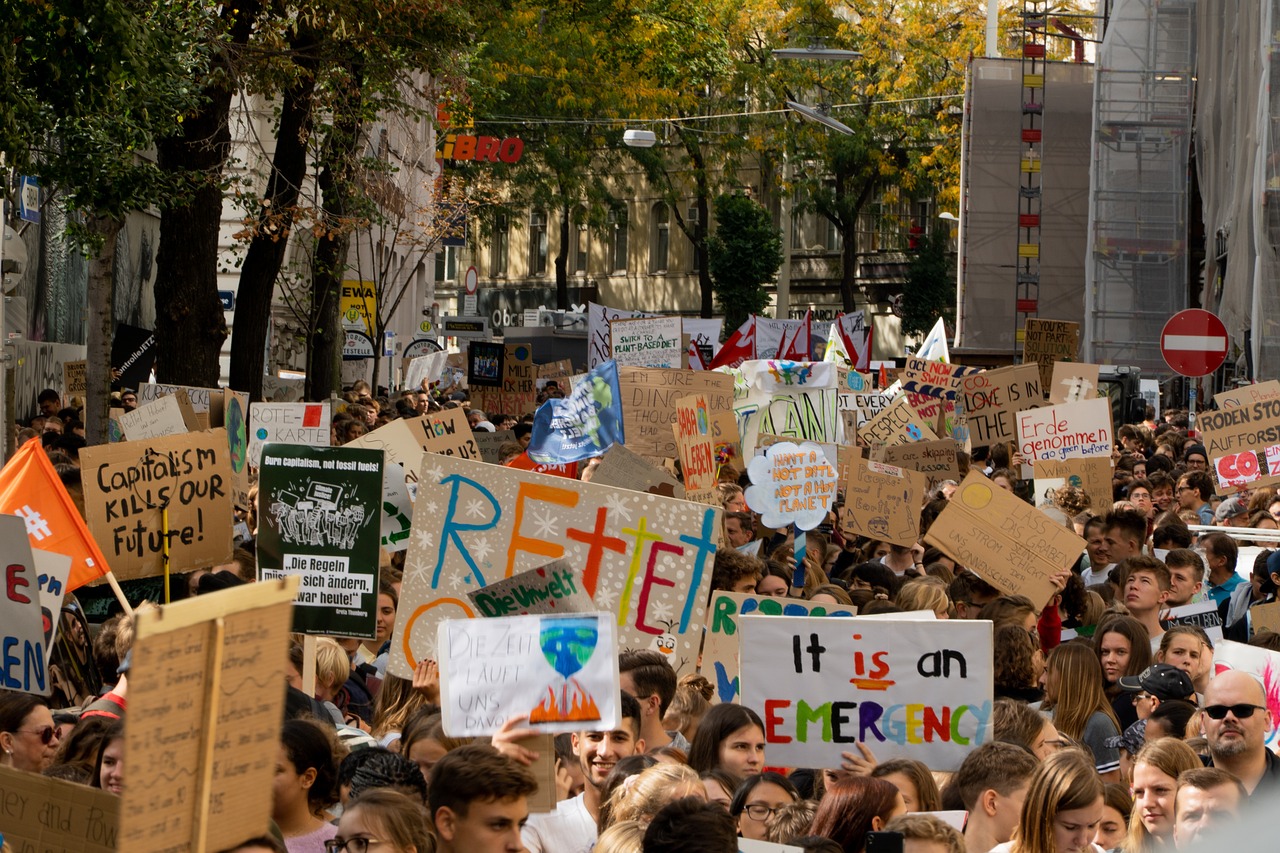
Intergenerational Ethics
When we think about climate change, it’s easy to get caught up in the immediate effects we're experiencing today. However, the concept of urges us to widen our perspective and consider the long-term consequences of our actions on future generations. This ethical framework challenges us to ask: what kind of world are we leaving behind? Are we acting as responsible stewards of the Earth, or are we merely indulging in short-term gains at the expense of those who will come after us?
At its core, intergenerational ethics is about our moral obligations to those who are not yet born. It compels us to reflect on the principles of justice and fairness. For instance, if we continue to exploit natural resources without restraint, we risk depriving future generations of their right to a healthy planet. This raises a critical question: should our current desires outweigh the needs of future inhabitants? The answer, many philosophers argue, is a resounding no.
To illustrate this point, consider the following ethical principles that underpin intergenerational ethics:
- Justice: We must ensure that our actions do not create injustices that future generations will have to bear.
- Responsibility: There is a moral duty to act in ways that protect and preserve the environment for those who will inherit it.
- Equity: Resources should be distributed fairly, considering the needs of both current and future populations.
These principles lead us to a crucial realization: the decisions we make today have far-reaching implications. For example, if we choose to prioritize fossil fuel consumption over renewable energy sources, we not only contribute to climate change but also jeopardize the quality of life for future generations. This is a heavy burden to bear. As we navigate the complexities of environmental policy and personal choices, we must ask ourselves whether we are acting in the best interests of those who will come after us.
Moreover, intergenerational ethics also intersects with the concept of sustainability. Sustainable practices are not just buzzwords; they represent a commitment to preserving the planet’s resources for future generations. This means embracing practices that allow for the regeneration of natural systems and the equitable distribution of resources. The challenge lies in balancing our current needs with the imperative to safeguard the future.
As we engage in discussions about climate policy, it is essential to include the voices of younger generations. Their perspectives can offer valuable insights into what they envision for their future and how they perceive the actions we take today. By fostering an inclusive dialogue, we can better align our policies with the ethical considerations that intergenerational ethics demands.
In conclusion, embracing intergenerational ethics is not merely an academic exercise; it is a moral imperative. We must take a step back and evaluate our actions through the lens of future generations. Are we paving the way for a sustainable and equitable world, or are we leaving behind a legacy of environmental degradation? The answers to these questions will shape the future of our planet and the lives of those who come after us.
1. What is intergenerational ethics?
Intergenerational ethics is the study of our moral obligations to future generations, emphasizing the importance of considering how our actions today will impact those who come after us.
2. Why is intergenerational ethics important in the context of climate change?
It encourages us to think beyond our immediate needs and consider the long-term consequences of our actions, promoting sustainability and fairness for future inhabitants of the planet.
3. How can we apply intergenerational ethics in our daily lives?
By making conscious choices that prioritize sustainability, advocating for policies that protect the environment, and engaging in discussions that include the perspectives of younger generations.
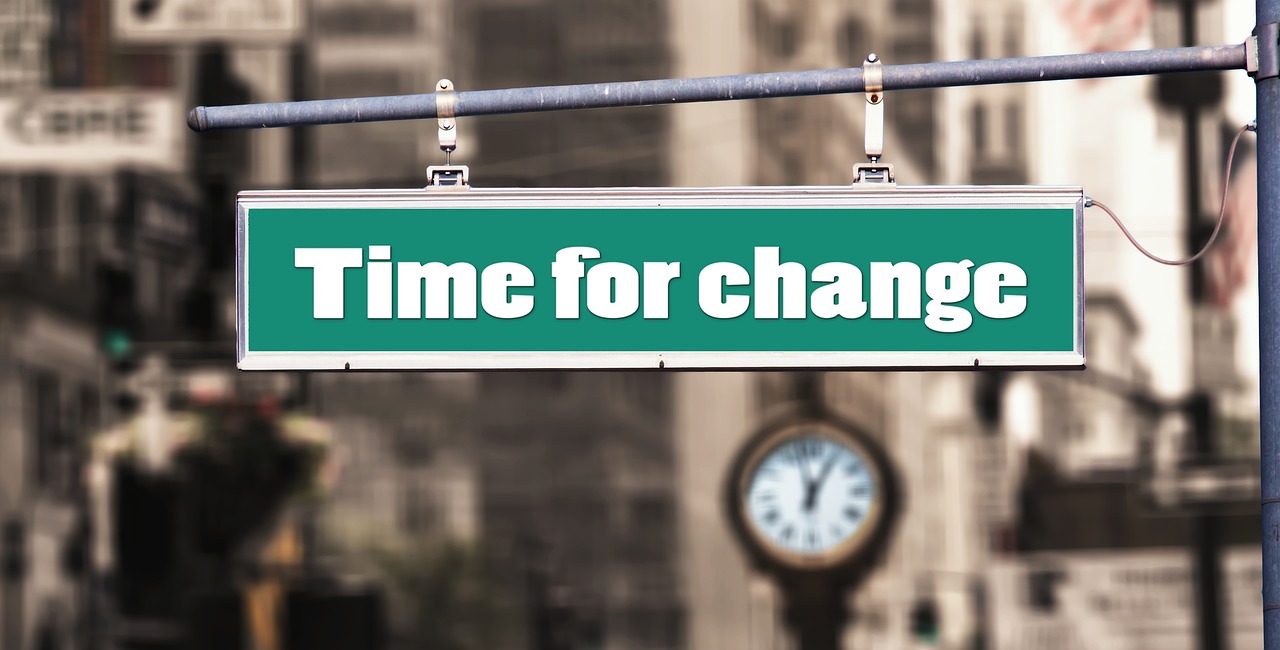
Global Justice
When we talk about climate change, we can't ignore the concept of . This idea revolves around the notion that not all nations are equally responsible for the mess we're in, nor do they bear the same burden of its consequences. Think about it: wealthy countries, which have historically contributed the most to greenhouse gas emissions, often bear the least brunt of climate change's effects. On the other hand, developing nations, which contribute relatively little to the problem, are often the first to feel its harsh impacts. This disparity raises a fundamental question: Is it fair for the most vulnerable populations to suffer the consequences of actions they did not commit?
To grasp the implications of this inequality, we can consider a few key points:
- Historical Responsibility: Developed nations have emitted the majority of carbon dioxide since the industrial revolution. This historical context is crucial when discussing who should pay for climate adaptation and mitigation efforts.
- Vulnerability: Many poorer nations lack the infrastructure and resources to cope with climate impacts, making them disproportionately vulnerable to disasters like floods, droughts, and hurricanes.
- Equitable Resource Distribution: There is an urgent need to address how resources are allocated globally to combat climate change, ensuring that poorer nations receive the support they need.
This leads us to the moral obligations of wealthier nations. They must not only acknowledge their role in causing climate change but also take responsibility for helping those who are most affected. calls for a rethinking of policies and practices that prioritize the needs of those who are suffering the most. It challenges us to create a world where environmental sustainability is not just a privilege of the rich but a right for all.
Furthermore, the concept of climate reparations has emerged as a potential solution. This idea suggests that wealthy countries should compensate poorer ones for the damages caused by climate change. While this might sound radical to some, it reflects a growing recognition that climate change is not just an environmental issue but a profound moral one. The table below summarizes the key aspects of global justice in relation to climate change:
| Aspect | Developed Countries | Developing Countries |
|---|---|---|
| Historical Emissions | High | Low |
| Current Vulnerability | Low | High |
| Moral Responsibility | High | Low |
| Need for Resources | Low | High |
Ultimately, the discourse on global justice in climate change is about recognizing our interconnectedness. We live in a world where the actions of one nation can have far-reaching consequences for others. The fight against climate change cannot be won in isolation; it requires a collective effort that transcends borders and prioritizes equity and fairness. As we navigate this complex landscape, it’s essential to keep asking ourselves: How can we ensure that justice is served in our response to climate change?
- What is global justice in the context of climate change? Global justice refers to the ethical considerations surrounding the unequal responsibilities and vulnerabilities of different nations regarding climate change.
- Why are developed countries more responsible for climate change? Developed countries have historically emitted more greenhouse gases due to industrial activities, contributing significantly to global warming.
- What can wealthy nations do to help developing countries? Wealthy nations can provide financial aid, technology transfer, and support for adaptation strategies to help developing countries cope with climate impacts.
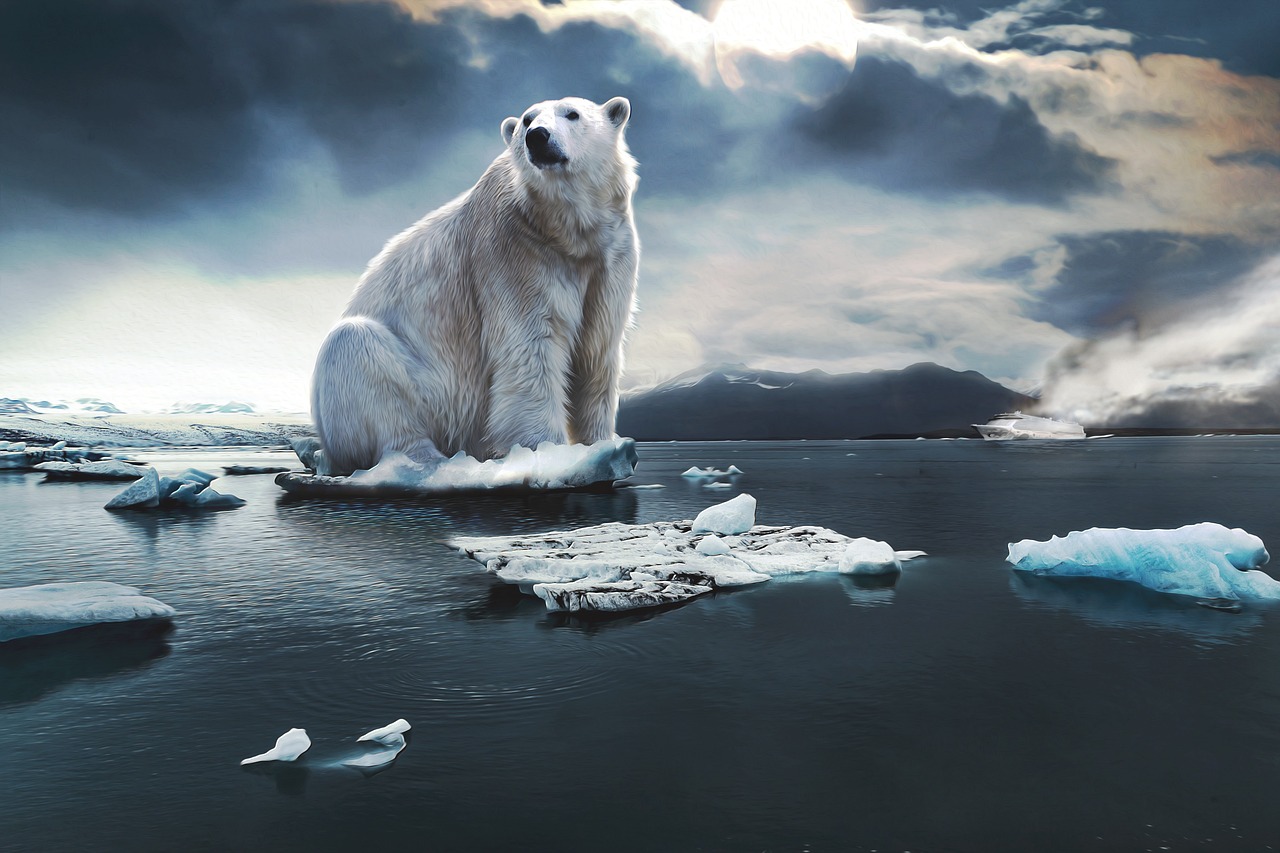
Philosophical Frameworks
When diving into the complex waters of climate change, it's essential to consider the that shape our understanding and responses to this pressing issue. These frameworks serve as lenses through which we can analyze our ethical responsibilities, societal behaviors, and the implications of our actions on the environment. Three primary philosophical approaches—utilitarianism, deontology, and virtue ethics—offer unique insights into how we can navigate the challenges posed by climate change.
Utilitarianism emphasizes the greatest good for the greatest number. In the context of climate change, this perspective prompts us to evaluate the consequences of our actions on a global scale. For instance, when considering policies aimed at reducing carbon emissions, a utilitarian approach would weigh the benefits of a healthier planet against the economic costs of implementing such measures. This framework encourages us to think about long-term impacts, suggesting that the well-being of future generations should be a priority in our decision-making processes.
On the other hand, deontology focuses on the morality of actions themselves rather than their consequences. This framework posits that we have a duty to act in ways that respect the rights of others, including non-human entities. From a deontological perspective, it becomes imperative to recognize our obligations to the environment. For example, if we acknowledge the intrinsic value of nature, we are compelled to protect ecosystems and wildlife, regardless of the economic implications. This approach challenges us to consider what is morally right, rather than merely what is beneficial.
Then we have virtue ethics, which emphasizes the importance of character and moral virtues in guiding our actions. This framework encourages individuals to cultivate virtues such as responsibility, compassion, and wisdom when engaging with climate issues. By fostering these qualities, we can inspire collective action and promote a culture of sustainability. Virtue ethics reminds us that our personal choices—like reducing waste or advocating for renewable energy—reflect our character and can influence others to follow suit.
To better understand these frameworks, let’s take a look at the table below, which summarizes how each perspective addresses climate change:
| Philosophical Framework | Key Focus | Implications for Climate Change |
|---|---|---|
| Utilitarianism | Consequences of actions | Policies should aim for the greatest overall benefit, prioritizing long-term sustainability. |
| Deontology | Morality of actions | Emphasizes our duty to protect the environment and respect the rights of all beings. |
| Virtue Ethics | Character and virtues | Encourages individuals to embody virtues that promote environmental stewardship. |
In conclusion, these philosophical frameworks not only enrich our understanding of climate change but also guide our actions and decisions. By integrating the insights from utilitarianism, deontology, and virtue ethics, we can develop a more holistic approach to environmental responsibility. This multifaceted perspective allows us to address the complexities of climate change while fostering a sense of shared responsibility among individuals, communities, and nations.
- What is the role of ethics in climate change? Ethics helps us understand our responsibilities towards the environment and future generations, guiding our actions and policies.
- How can philosophical frameworks influence climate action? They provide different perspectives on how to approach environmental issues, shaping our moral obligations and guiding our decision-making.
- Why is it important to consider future generations in climate discussions? Decisions made today will impact the well-being of future generations, making it crucial to consider their needs and rights.
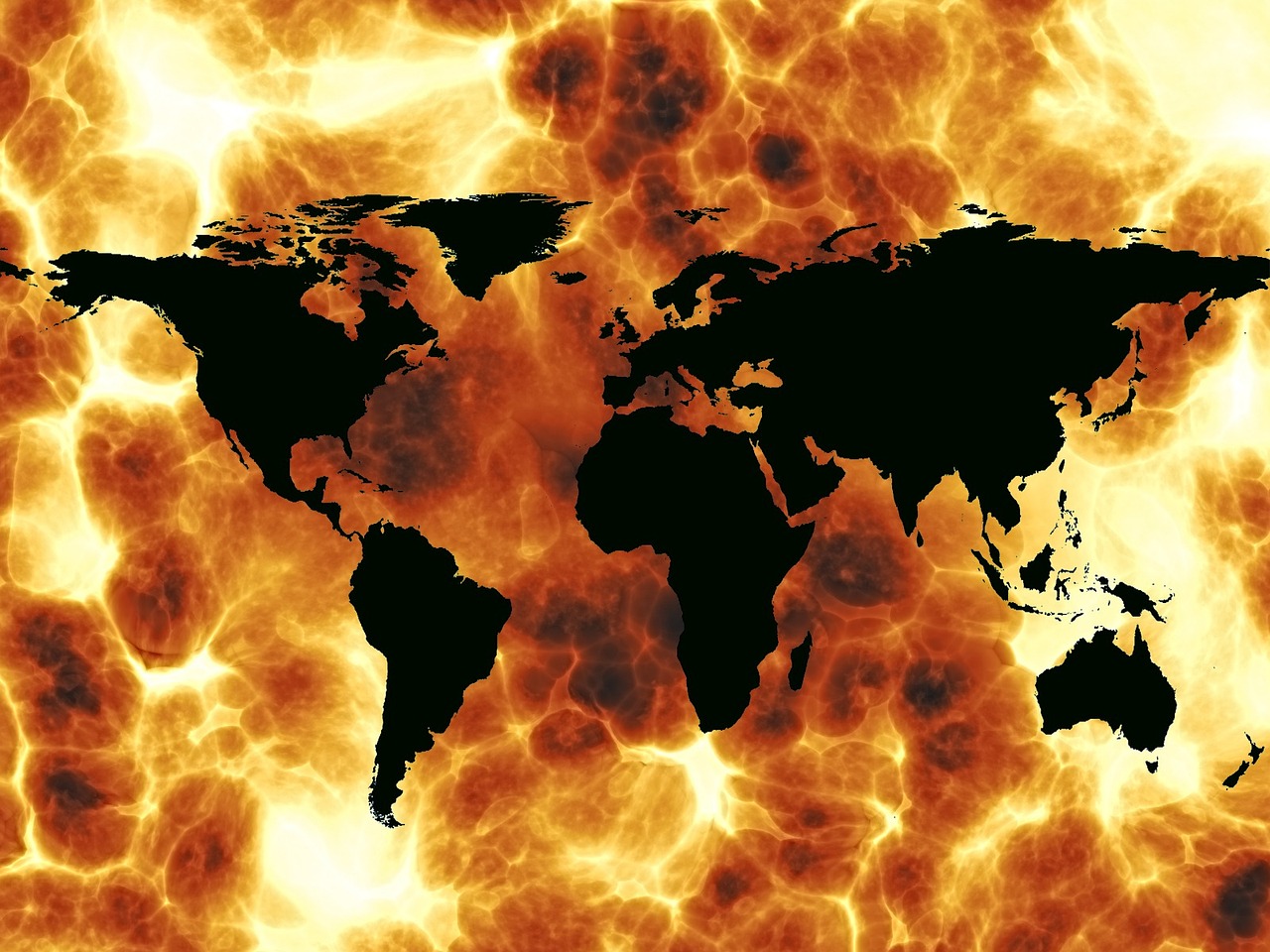
Climate Change and Human Nature
When we talk about climate change, it's impossible to ignore the profound connection between human nature and the environmental challenges we face today. Our inherent traits, behaviors, and societal structures significantly influence the way we interact with our planet. It's almost like a dance—sometimes graceful, sometimes clumsy—where our steps can either lead us toward sustainability or plunge us deeper into ecological chaos. Have you ever stopped to think about how our desires, fears, and social constructs shape our environmental impact?
At the heart of this relationship lies the paradox of human nature. On one hand, we possess an incredible capacity for innovation and problem-solving. We’ve built towering cities, explored the depths of the oceans, and even ventured into space. Yet, on the other hand, we often act out of self-interest, prioritizing short-term gains over long-term sustainability. This duality raises critical questions: Are we inherently selfish beings, or do we have the potential for profound altruism?
Moreover, our societal structures can either exacerbate or mitigate the effects of climate change. For instance, consider the following key factors that influence our environmental behavior:
- Consumerism: The relentless pursuit of material goods often overshadows our responsibility to the planet. The more we consume, the more we deplete our resources.
- Social Norms: What is considered "normal" in society can dictate our actions. If sustainability is not a societal value, individuals may feel less compelled to act responsibly.
- Education: Awareness and education play crucial roles. The more informed we are about our environmental impact, the more likely we are to make conscious choices.
This interplay between human nature and climate change is not just an academic discussion; it has real-world implications. For instance, our reliance on fossil fuels reflects a deep-seated dependency that is hard to break. It’s like being in a toxic relationship—comfortable yet harmful. We know that we need to change, but the path to doing so is fraught with challenges.
Furthermore, our approach to climate change often reflects our collective psyche. We tend to react to crises with urgency, yet we struggle with proactive measures when the threat feels distant or abstract. This psychological barrier can lead to a cycle of inaction, where we acknowledge the problem but fail to take meaningful steps toward resolution. It's a classic case of cognitive dissonance, where our beliefs about climate change clash with our everyday behaviors.
As we explore the philosophical implications of climate change and human nature, it's essential to recognize that change is possible. By fostering a culture of sustainability, encouraging community engagement, and promoting education, we can reshape our relationship with the environment. Just as a gardener nurtures a seed into a flourishing plant, we can cultivate a mindset that prioritizes ecological balance and responsibility.
In conclusion, the relationship between climate change and human nature is complex and multifaceted. Understanding this connection is crucial for developing effective strategies to combat environmental degradation. Are we ready to confront our nature and make the necessary changes for a sustainable future? The answer lies within us.
- What role does human nature play in climate change? Human nature influences our behaviors and decisions, often prioritizing short-term gains over long-term sustainability.
- Can societal structures impact environmental responsibility? Yes, societal norms, consumerism, and education significantly shape how individuals and communities engage with environmental issues.
- How can we foster a culture of sustainability? By promoting education, community engagement, and encouraging sustainable practices, we can reshape our relationship with the environment.

Collective Action
When we think about tackling climate change, the concept of looms large. It's like trying to steer a massive ship; no single individual can do it alone. Instead, it requires a coordinated effort from all of us. This is where the philosophical challenges come into play. How do we align individual interests with the common good? This is a question that weighs heavily on our shoulders as we navigate the murky waters of environmental responsibility.
At the heart of the issue is the tension between our personal desires and the needs of the community. Imagine a neighborhood where everyone has their own car, each one spewing carbon emissions into the atmosphere. While it may be convenient for individuals, the collective impact is detrimental. This is where the philosophy of utilitarianism shines a light. Utilitarianism suggests that we should act in ways that maximize overall happiness. In this context, if everyone chooses to use public transportation or carpool, the collective happiness—reflected in a healthier planet—would outweigh the temporary inconvenience of changing personal habits.
However, the challenge doesn't stop there. The question of free-riding often arises in discussions about collective action. Why should I change my behavior when others may not? This mentality can lead to a stalemate, where everyone waits for someone else to take the plunge. To combat this, we need to foster a sense of community and shared responsibility. When people feel connected and part of a larger movement, they are more likely to take action. It’s about creating a culture where environmental stewardship is not just encouraged but celebrated.
Furthermore, we must consider the role of government policies and incentives in promoting collective action. Effective policies can encourage individuals and businesses to participate in sustainability initiatives. For instance, tax breaks for using renewable energy sources or subsidies for electric vehicles can nudge people toward making greener choices. When the system supports collective action, it becomes easier for individuals to align their interests with the greater good.
To illustrate this, let's take a look at a table that summarizes some key factors influencing collective action in climate change:
| Factor | Description |
|---|---|
| Community Engagement | Fostering a sense of belonging and shared purpose can motivate individuals to take action. |
| Government Incentives | Policies that reward sustainable practices can drive collective efforts toward climate action. |
| Education and Awareness | Informing the public about the impacts of climate change can enhance participation in collective action. |
| Technological Access | Providing access to sustainable technologies can empower communities to take collective action. |
In conclusion, collective action is not just a lofty ideal; it's a necessity in our fight against climate change. By bridging the gap between individual and community interests, fostering a culture of sustainability, and leveraging government support, we can create a powerful force for change. It's about transforming our mindset from "What can I do?" to "What can we do together?" After all, the strength of our actions lies in our unity.
- What is collective action in the context of climate change?
Collective action refers to the efforts made by a group of individuals to achieve a common goal, particularly in addressing environmental issues like climate change. - Why is collective action important?
It is crucial because climate change is a global issue that requires coordinated efforts from individuals, communities, and nations to effectively mitigate its impacts. - How can individuals contribute to collective action?
Individuals can contribute by participating in local initiatives, advocating for sustainable practices, and supporting policies that promote environmental stewardship. - What role do governments play in fostering collective action?
Governments can implement policies, provide incentives, and create educational programs that encourage and facilitate collective efforts toward sustainability.
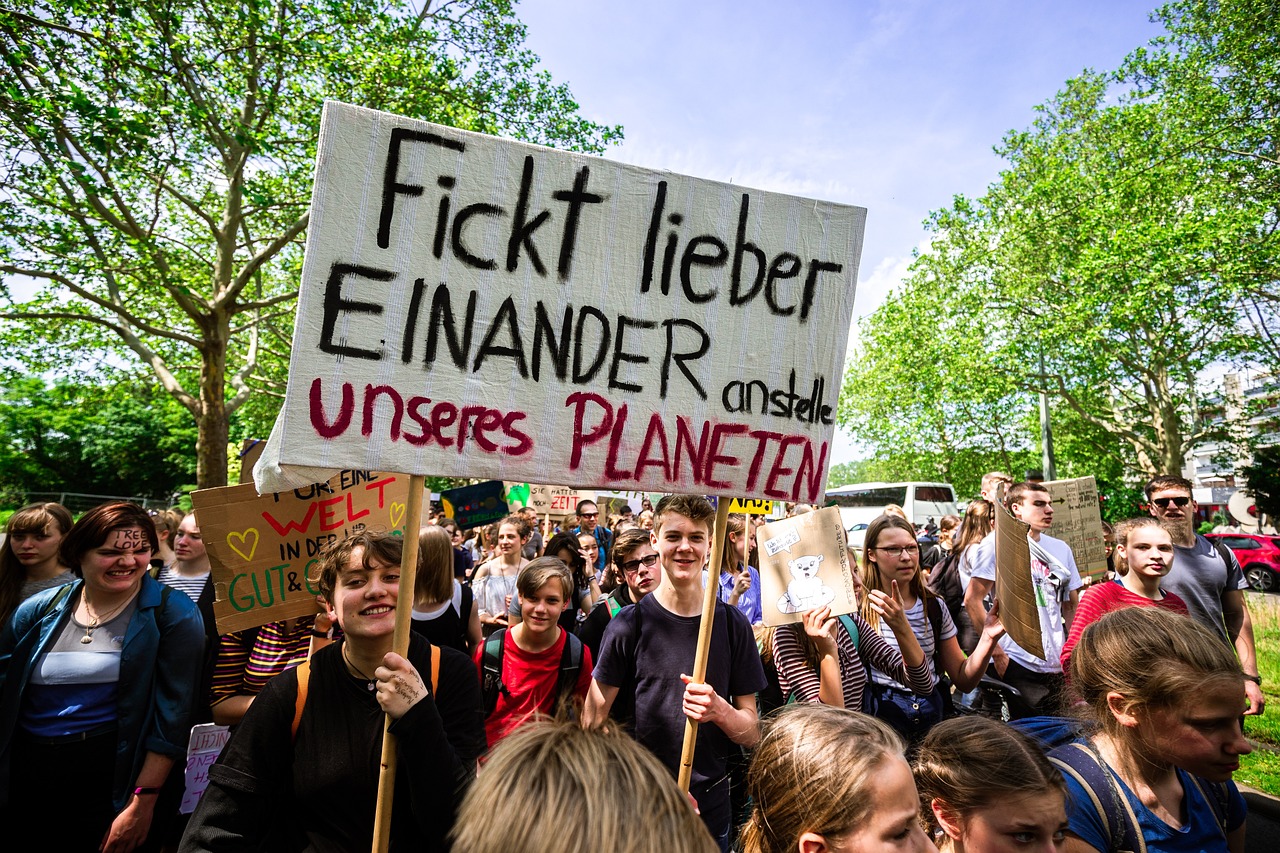
Technological Solutions
In today’s rapidly evolving world, the role of technology in combating climate change has become a topic of heated debate. On one hand, we have the promise of innovative solutions that could significantly reduce our carbon footprint, while on the other, there are ethical dilemmas and potential unintended consequences that we must carefully navigate. Technology can be likened to a double-edged sword; it holds the potential for great good, but if wielded irresponsibly, it can lead to further complications in our quest for a sustainable future.
One of the most talked-about technological solutions is renewable energy. Solar panels and wind turbines are popping up like mushrooms after a rainstorm, providing clean energy alternatives to fossil fuels. These technologies not only help reduce greenhouse gas emissions but also promote energy independence. However, they come with their own set of challenges, such as the environmental impact of manufacturing solar panels and the land use associated with wind farms. So, while renewable energy is a step in the right direction, we must also consider the broader implications of these technologies.
Another area worth exploring is carbon capture and storage (CCS). This technology aims to trap carbon dioxide emissions from sources like power plants and store it underground, preventing it from entering the atmosphere. The potential for CCS is enormous, but it raises philosophical questions about our reliance on technological fixes instead of addressing the root causes of climate change. Are we merely postponing the inevitable, or can we genuinely achieve a sustainable balance with these solutions? The answer may not be straightforward.
Moreover, advancements in artificial intelligence (AI) and machine learning are proving to be game-changers in climate modeling and resource management. By analyzing vast amounts of data, AI can help us predict climate patterns and optimize energy usage. Yet, we must ask ourselves: does this reliance on technology reduce our responsibility as stewards of the Earth? Are we outsourcing our moral obligations to algorithms? These questions highlight the philosophical implications of our increasing dependence on technological solutions.
It's also crucial to consider the ethical dimensions of technological innovation. As we innovate, we must ensure that these technologies are accessible and equitable. For instance, the development of electric vehicles (EVs) has the potential to revolutionize transportation and significantly cut emissions. However, if only the wealthy can afford these vehicles, we risk exacerbating existing inequalities. Global justice must be at the forefront of our technological advancements, ensuring that solutions benefit all of humanity, not just a privileged few.
In summary, while technology offers promising solutions to climate change, it is essential to approach these innovations with a critical eye. We must balance the potential benefits with the ethical considerations and unintended consequences that accompany them. The path forward requires not just technological innovation but also a deep philosophical reflection on our responsibilities to the planet and future generations.
- What are the main technological solutions for climate change?
Technological solutions include renewable energy sources like solar and wind, carbon capture and storage, and advancements in artificial intelligence for climate modeling. - How does technology impact climate change?
Technology can help reduce greenhouse gas emissions and improve energy efficiency, but it can also introduce ethical dilemmas and unintended consequences. - Is relying on technology enough to combat climate change?
While technology is a crucial part of the solution, it must be complemented by changes in behavior, policy, and ethical considerations to be truly effective. - How can we ensure equitable access to technological solutions?
Global justice must be prioritized in technological advancements to ensure that solutions benefit all communities, particularly those that are most vulnerable to climate change.
Frequently Asked Questions
- What are the ethical implications of climate change?
Climate change raises significant ethical questions regarding our responsibilities to the environment and future generations. It challenges us to consider how our actions today affect the planet and the quality of life for those who will come after us. Moral philosophy urges us to act in ways that prioritize sustainability and equity, leading to tough dilemmas about resource use and environmental justice.
- How does climate change pose an existential threat?
Climate change is not just an environmental issue; it poses a fundamental threat to human existence and societal structures. The potential for catastrophic events, such as extreme weather, rising sea levels, and food shortages, raises profound philosophical questions about the value of life and the moral imperatives we face in confronting these challenges.
- What is our responsibility towards future generations?
We hold a moral obligation to future generations to ensure that they inherit a livable planet. Intergenerational ethics compels us to consider how our current decisions impact the environment and resources available to those who will come after us. This ethical framework encourages sustainable practices and policies that safeguard the well-being of future inhabitants of Earth.
- How does global justice relate to climate change?
Global justice in the context of climate change examines the disparities in responsibility and vulnerability among nations. Wealthier countries, which have historically contributed the most to greenhouse gas emissions, have a moral obligation to assist poorer nations that are often the most affected by climate impacts. This raises questions about fairness and equity in resource distribution and climate action.
- What philosophical frameworks can help us understand climate change?
Various philosophical frameworks, such as utilitarianism, deontology, and virtue ethics, provide different lenses through which to view climate change. Utilitarianism focuses on the greatest good for the greatest number, deontology emphasizes duty and rules, while virtue ethics considers the character and intentions behind actions. Each perspective shapes our understanding of environmental responsibility and guides our responses to climate issues.
- How does human nature contribute to climate change?
Human nature plays a significant role in climate change, as our inherent traits and societal behaviors often lead to environmental degradation. The tension between individual interests and collective well-being complicates efforts to address climate issues. Recognizing these traits can help us devise better strategies for fostering sustainable practices and community engagement in environmental stewardship.
- What are the challenges of collective action in combating climate change?
Collective action is crucial in the fight against climate change, yet it faces philosophical challenges. The conflict between individual interests and the common good often hinders cooperation. To effectively address climate issues, communities must work together, balancing personal desires with the needs of the environment and society as a whole.
- What are the ethical considerations of relying on technology for climate solutions?
While technology offers promising solutions to combat climate change, it also raises ethical questions about reliance on innovation. We must consider potential unintended consequences and the implications of technological dependency on our environmental future. Balancing technological advancement with ethical responsibility is essential to ensure that our actions lead to positive outcomes for the planet.

